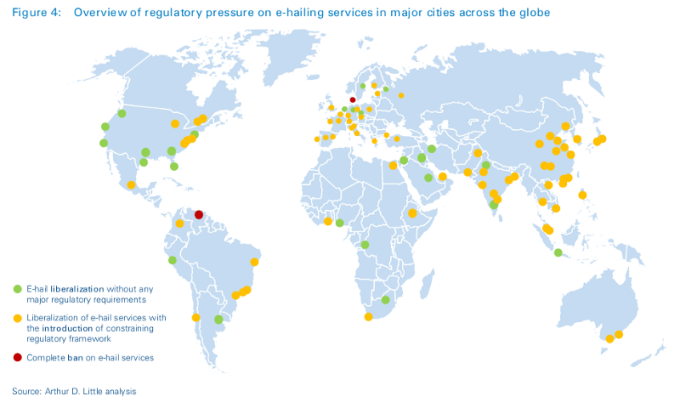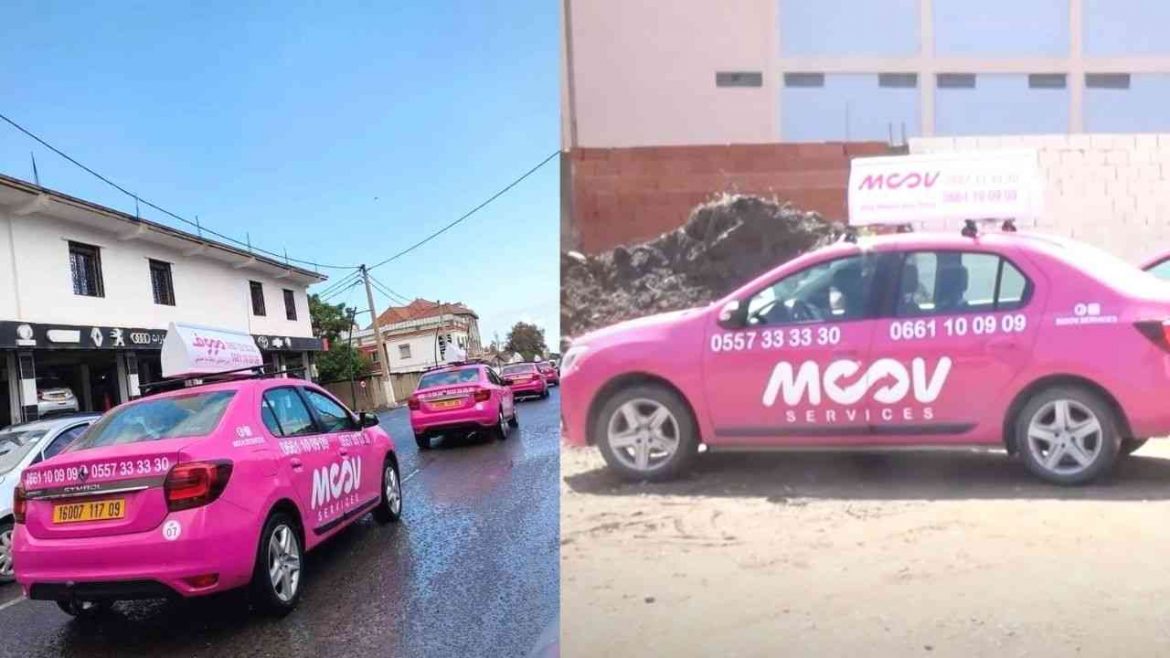Women-Only e-Hailing Startup, Moov Services, Suspended In Algeria One Week After Launch
The North western province of Algeria, Blida, has suspended the operations of Moov Services, the first taxi service exclusively reserved for women in Algeria. The suspension of the pink taxi service by the management of the transports of Blida province follows statement from the authorities that the startup does not hold a taxi licence.
Critics say the suspension of Moov Services was unjustified given that there are several companies of the same kind in several provinces of Algeria operating without license. They also noted that the pink taxi service would not need a taxi license because it is part of the startup projects, such as yassir, the most famous service of this kind in Algeria.
“In a conservative society such as Blida, the creation of this VTC services was a matter of course,” says Leila Zeroual, the company’s manager, at the launch of the startup last week. “ Our startup aims to provide safe transportation for women and families.”

Before the suspension, about more than thirty women took the plunge and became drivers on the Moov Services’ platform. While testifying, they noted the difficulties women face in travelling with men and welcome Moov’s initiative.
Read also:WemTech Spring 2021 Program for African Women in Technology and Engineering Calls for Applications
“Like many women, I can’t get into a car with a man. With Moov, we can move around in peace,” says Fulla. She was corroborated by her colleague Ouarda, who explained that “ between women, we feel more comfortable and safer.”
However, the move by Moov Services quickly generated mixed reactions on social media, with some seeing it as major competition to men.

Algeria Joins The League Of African Countries Hostile To Innovative Ride-hailing Startups
The suspension of Moov Services in Blida repeats a similar incident in December last year, when Morocco’s largest city of Casablanca declared the operations of ride-hailing startup, Yassir, within the Casablanca province as illegal, stating that it had not issued any authorization to the startup (called in full, Yassir Maroc Sarl) to operate within the metropolis.
Yassir’s operations in Casablanca will not be the first to be declared illegal by the city’s authorities. In 2015, authorities issued a press release stating that “Uber Maroc’s activities in Casablanca are illegal” and that its activities are “not authorized, and expose people working there, as well as the drivers involved with the company to sanctions.” One of Uber’s sins was that while pretending to partner with local tourist transportation unions, it catered to young Moroccans using local credit cards — not tourists. In 2018, battered by the continued frustration, Uber folded up and left Morocco.
Charles Rapulu Udoh

Charles Rapulu Udoh is a Lagos-based lawyer who has advised startups across Africa on issues such as startup funding (Venture Capital, Debt financing, private equity, angel investing etc), taxation, strategies, etc. He also has special focus on the protection of business or brands’ intellectual property rights ( such as trademark, patent or design) across Africa and other foreign jurisdictions.
He is well versed on issues of ESG (sustainability), media and entertainment law, corporate finance and governance.
He is also an award-winning writer

